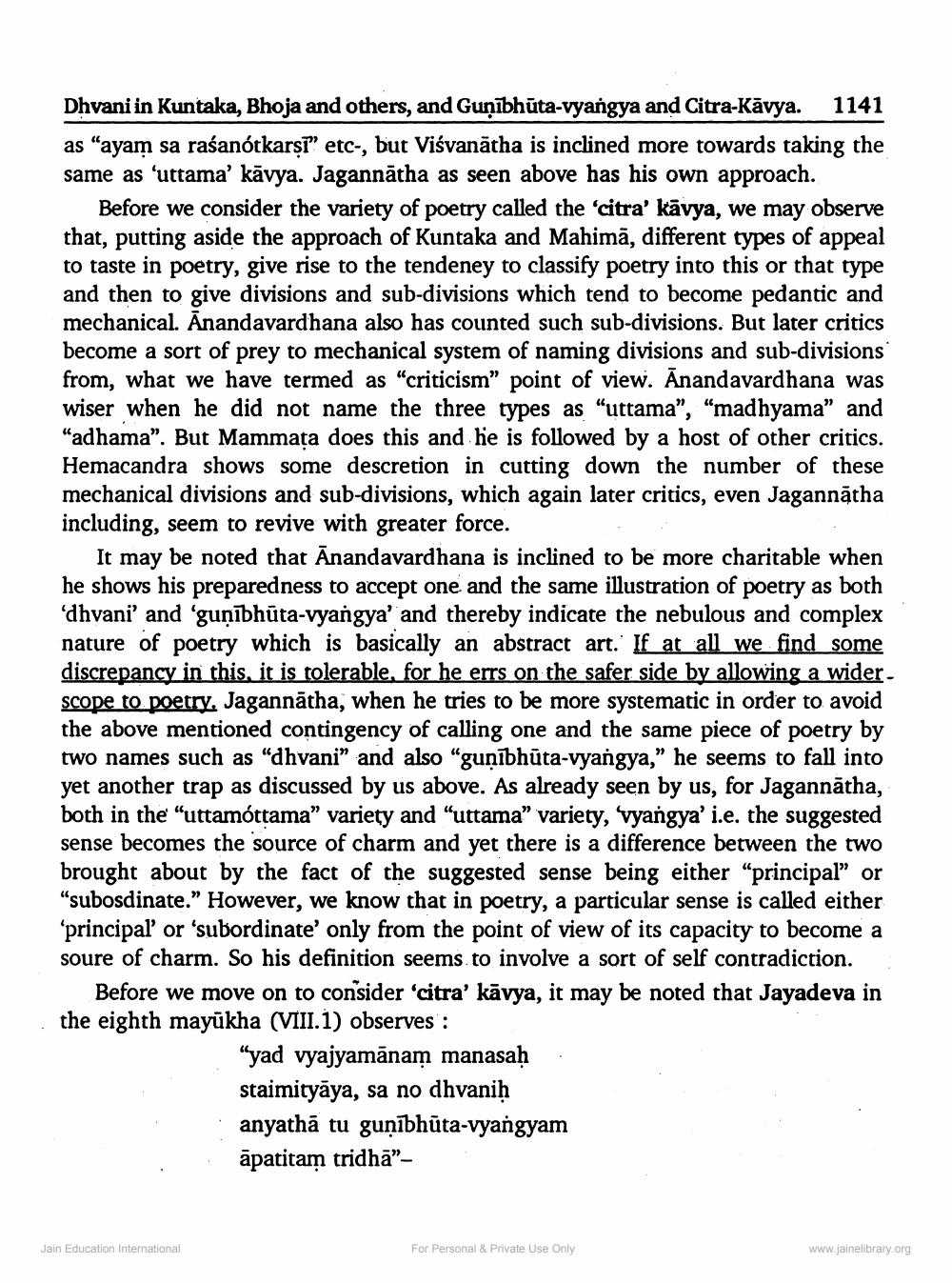________________
Dhvani in kuntaka, Bhoja and others, and Gunībhūta-vyangya and Citra-Kāvya. 1141 as "ayam sa raśanótkarşi” etc-, but Viśvanātha is inclined more towards taking the same as 'uttama' kāvya. Jagannātha as seen above has his own approach.
Before we consider the variety of poetry called the 'citra' kāvya, we may observe that, putting aside the approach of Kuntaka and Mahimā, different types of appeal to taste in poetry, give rise to the tendeney to classify poetry into this or that t and then to give divisions and sub-divisions which tend to become pedantic and mechanical. Anandavardhana also has counted such sub-divisions. But later critics become a sort of prey to mechanical system of naming divisions and sub-divisions from, what we have termed as "criticism" point of view. Anandavardhana was wiser when he did not name the three types as "uttama", "madhyama" and "adhama". But Mammata does this and he is followed by a host of other critics. Hemacandra shows some descretion in cutting down the number of these mechanical divisions and sub-divisions, which again later critics, even Jagannątha including, seem to revive with greater force.
It may be noted that Anandavardhana is inclined to be more charitable when he shows his preparedness to accept one and the same illustration of poetry as both dhvani' and 'gunībhūta-vyangya' and thereby indicate the nebulous and complex nature of poetry which is basically an abstract art. If at all we find some discrepancy in this, it is tolerable, for he errs on the safer side by allowing a widerscope to poetry. Jagannātha, when he tries to be more systematic in order to avoid the above mentioned contingency of calling one and the same piece of poetry by two names such as "dhvani” and also "gunībhūta-vyangya," he seems to fall into yet another trap as discussed by us above. As already seen by us, for Jagannātha, both in the "uttamóttama” variety and "uttama” variety, vyangya' i.e. the suggested sense becomes the source of charm and yet there is a difference between the two brought about by the fact of the suggested sense being either “principal” or "subosdinate." However, we know that in poetry, a particular sense is called either ‘principal' or 'subordinate' only from the point of view of its capacity to become a soure of charm. So his definition seems to involve a sort of self contradiction.
Before we move on to consider citra' kāvya, it may be noted that Jayadeva in the eighth mayükha (VIII.1) observes :
"yad vyajyamānam manasaḥ . staimityāya, sa no dhvanih anyathā tu gunībhūta-vyangyam āpatitam tridhā”
Jain Education International
For Personal & Private Use Only
www.jainelibrary.org




